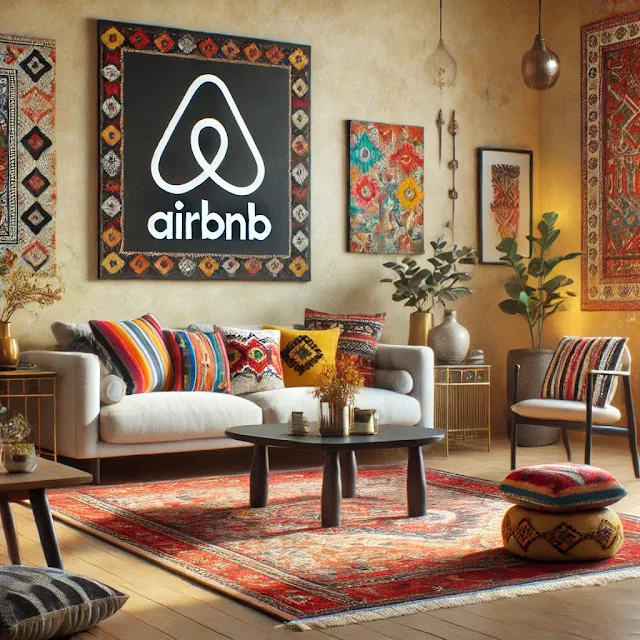Creating a Culturally Inclusive Airbnb Experience
Travelers from diverse cultural backgrounds seek accommodations that respect and celebrate their traditions. By fostering inclusivity in your Airbnb, you can enhance guest satisfaction and attract a wider audience. This guide will help you create a welcoming environment that resonates with guests from all over the world.
Why Cultural Inclusivity Matters
- Appeals to a Global Audience: A culturally sensitive listing attracts travelers from diverse backgrounds.
- Enhances Guest Comfort: Guests feel more at home in a space that respects their values.
- Encourages Positive Reviews: Thoughtful touches often result in glowing feedback.
1. Learn About Your Guests’ Cultures
Understanding cultural norms allows you to meet your guests’ expectations.
Key Areas to Research
- Customs around greetings, communication, and hospitality.
- Dietary practices, such as kosher, halal, or vegetarian requirements.
- Religious observances, including prayer times and holiday celebrations.
Resources
- Books or online courses on cultural competence.
- Community groups or forums for firsthand insights.
2. Decorate with Cultural Sensitivity
Your decor choices should reflect inclusivity without stereotyping.
How to Incorporate Culture
- Use neutral, elegant decor that appeals to diverse tastes.
- Include subtle nods to local culture, such as art from regional artists.
Avoid Cultural Appropriation
- Steer clear of decor that misrepresents or trivializes traditions.
- Opt for authentic pieces when showcasing a specific culture.
3. Accommodate Religious and Cultural Practices
Small adjustments can make a big difference in guest comfort.
Dietary Needs
- Provide cookware and utensils that haven’t been used for restricted foods.
- Label kitchen items as “meat-free” or “alcohol-free” for transparency.
Prayer Spaces
- Offer a quiet area for meditation or prayer.
- Provide items like a prayer mat or qibla compass for Muslim guests.
Privacy
- Ensure private spaces for families or guests with modesty preferences.
4. Highlight Local Diversity
Promote the cultural richness of your location to enhance your guests’ experience.
What to Include
- A guidebook featuring diverse local restaurants, festivals, and attractions.
- Recommendations for cultural tours or museums.
Collaborate with Local Businesses
- Partner with local artisans or performers to offer unique experiences.
- Include welcome gifts, like handmade items, that celebrate the area’s culture.
5. Communicate Effectively
Clear and respectful communication builds trust with guests.
Language Considerations
- Offer instructions and guides in multiple languages.
- Use translation tools for smoother communication.
Be Open-Minded
- Respect cultural differences in communication styles, such as directness or formality.
6. Respect Holidays and Traditions
Acknowledging guests’ special occasions shows care and attentiveness.
Holiday-Specific Gestures
- Provide festive decor or snacks for holidays like Diwali or Lunar New Year.
- Allow late check-outs for guests observing fasting or prayer schedules.
Cultural Awareness
- Learn which holidays may impact your guests’ stay and adapt accordingly.
7. Market Your Inclusivity
Make your listing stand out by emphasizing its cultural sensitivity.
What to Highlight
- Features like halal-friendly kitchens, multilingual guides, or prayer spaces.
- Proximity to cultural or religious centers.
Example Listing Text:
“Our home is thoughtfully designed to welcome guests from all cultural backgrounds. Enjoy a peaceful stay with inclusive amenities, including a prayer space and multilingual guidebooks.”
8. Handle Cultural Misunderstandings Gracefully
Being prepared for differences ensures smoother interactions.
What to Do
- Apologize sincerely if a misunderstanding occurs.
- Use it as a learning opportunity to improve future hosting practices.
9. Collect Feedback to Improve
Guests can provide valuable insights into making your space more inclusive.
Ask Specific Questions
- What could have improved their experience?
- Did they feel their cultural needs were met?
Implement Changes
Use feedback to refine your space and amenities.
The Benefits of Cultural Inclusivity
By embracing diversity, you can:
- Attract More Guests: Inclusivity appeals to a global audience.
- Enhance Guest Loyalty: Thoughtful accommodations create lasting impressions.
- Boost Your Reputation: Stand out as a culturally aware and respectful host.
Final Thoughts: A Welcoming Space for Everyone
Cultural inclusivity isn’t just good for business—it’s an opportunity to connect with people from around the world. By celebrating diversity and respecting traditions, you can create a space that feels like home for everyone.
Ready to create a culturally inclusive Airbnb? Explore more hosting tips on Airbnb Expert Hosting Blog and check out our Amazon Shopping List for inclusive hosting essentials.
Discover more from DG Speaks
Subscribe to get the latest posts sent to your email.






